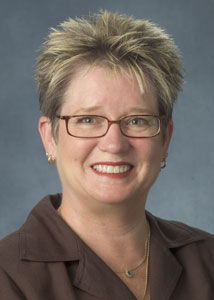 Mental illness isn’t fun. And, nothing in my 56 years of experience prepared me for dealing with mental illness when it struck my family. Seemingly out of the blue, our loved one’s puzzling behavior began disrupting our lives in ways we could have never imagined. It took us more than seven years to untangle the fact that she was suffering from anxiety, depression and obsessive compulsive disorder, all of which had been triggered by post-traumatic stress disorder that had emerged during her college years. Compounded by addiction to prescription drugs, our loved one’s journey took literally dozens of specialists to discover her underlying illnesses and find adequate resources to develop a path to recovery.
Mental illness isn’t fun. And, nothing in my 56 years of experience prepared me for dealing with mental illness when it struck my family. Seemingly out of the blue, our loved one’s puzzling behavior began disrupting our lives in ways we could have never imagined. It took us more than seven years to untangle the fact that she was suffering from anxiety, depression and obsessive compulsive disorder, all of which had been triggered by post-traumatic stress disorder that had emerged during her college years. Compounded by addiction to prescription drugs, our loved one’s journey took literally dozens of specialists to discover her underlying illnesses and find adequate resources to develop a path to recovery.
Mental illness stinks. And, understanding what mental illness is or how these brain disorders can affect your loved one and your family takes a lot of effort on your part. This is due to two factors. First, stigma about mental illness and substance abuse is still pervasive in the 21st Century, stifling our ability to talk openly about these things and suicide.
Second, our fractured health care system poorly supports the identification and treatment of brain disorders like anxiety, depression, obsessive compulsive disorder, bi-polar disorder and schizophrenia. In fact, Kansas earned a "D" from the National Alliance on Mental Illness (NAMI) in 2009 in their report entitled: "Grading the States: A Report on America’s Mental Health Care System for Serious Mental Illness." We weren’t at all prepared for this fractured and substandard level of care – not in the country that has the "best health care in the world." And, I’m an educated, upper-middle class individual who has access to health insurance. What happens to those families who don’t have the education or resources to advocate for help in their time of crises?
Mental illness stinks. And, it doesn’t just stink for me, my loved one and my family. We are not unique. In fact, the Substance Abuse and Mental Health Services Administration (SAMHSA) found in a 2009 survey that over 45 million of us had experienced serious mental illness in the preceding year. Additionally, more than 20 percent of those who struggled with mental illness in 2008 were also suffering from a serious substance use disorder (abuse or dependence on alcohol, prescription or illicit drugs). And, if we weren’t the ones suffering, we were likely to be the ones supporting those who are suffering.
Yes, mental illness stinks for all of us. But, it doesn’t have to. Get busy talking; get educated, get the facts and get help for your loved one and for yourself. In fact, DEMAND IT! And, one of the best places to begin is NAMI (www.nami.org), the largest grassroots mental health advocacy organization in the country. Through educational programs like the upcoming Family-to-Family program, you can find help and hope for developing a path to recovery for your loved one and your family. We did!
So take that first step toward mental health. Join me and my co-facilitators for the program and make a difference in your family’s life.
If you would like to register for the Family-to-Family program, contact Susie Hurst with Jewish Family Services, (913) 327-8250 or email her at .
Joy Koesten holds a doctorate in communication studies from the University of Kansas and teaches graduate courses in health communication, research methods, interpersonal and organizational communication at KU’s Edwards Campus. She is also a certified teacher for the Family-to-Family course through the National Alliance on Mental Illness (NAMI). Koesten will facilitate this free course in partnership with Jewish Family Services beginning Jan. 10, 6:30-9 p.m. in Conference Room B at the Jewish Community Campus.


